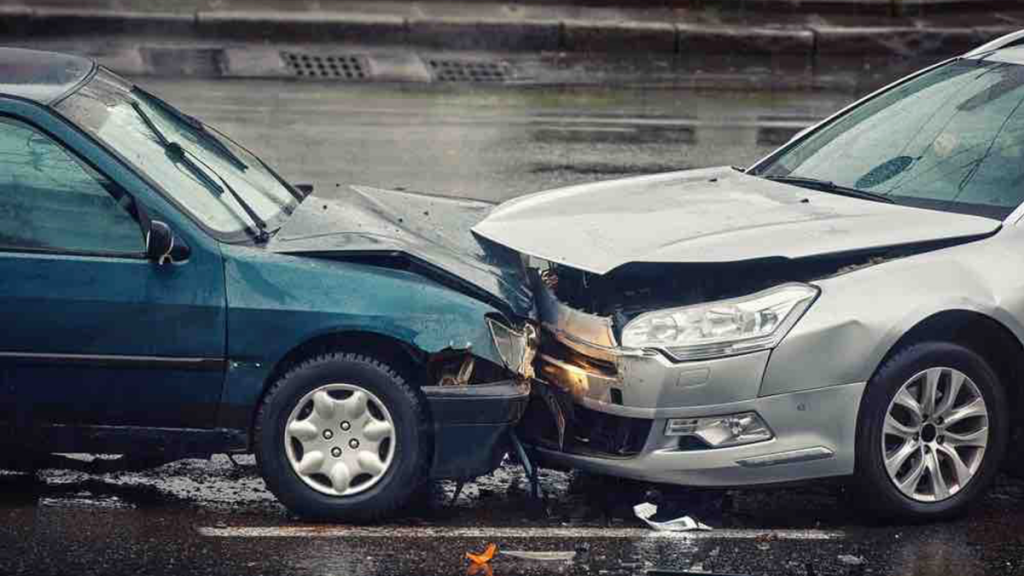Head-on collisions are among the most severe types of traffic accidents.
They often result in serious injuries or even fatalities. According to the DOT, head-on collisions account for 14% of all traffic fatalities each year.
But beyond the immediate physical impact, there are legal consequences to consider.
Many head-on collisions occur on two-lane roads or when passing. These circumstances can complicate the determination of fault and liability.
Whether you’re a victim, a legal professional, or simply interested in understanding the legal implications of such head-on accidents, this comprehensive guide will provide valuable insights.
Understanding Head-On Collisions
Contents
Head-on collisions occur when two vehicles traveling in opposite directions crash into each other.
These accidents are often severe due to the combined speed of both vehicles at the point of impact.
Common Causes and Statistics
There are several common causes of head-on collisions.
These include distracted driving, driving under the influence, fatigue, and poor visibility.
- Distracted driving: This includes activities like texting, eating, or using a GPS while driving.
- Driving under the influence: Alcohol or drugs can impair a driver’s ability to operate a vehicle safely. Alcohol is a factor in many wrong way crashes.
- Fatigue: Tired drivers may drift into the opposite lane, causing a head-on collision.
- Poor visibility: Fog, rain, or darkness can make it difficult for drivers to see the road ahead.
Why Many Head-On Collisions Occur on Two-Lane Roads
Two-lane roads present unique challenges for drivers.
With vehicles traveling in opposite directions and only a painted line separating them, the risk of a head-on collision increases.
The Risks of Passing on Two-Lane Roads
Passing on a two-lane road can be risky.
Drivers must enter the opposing lane to overtake a slower vehicle, increasing the chance of a head-on collision if oncoming traffic is not accurately judged.
Determining Fault in Head-On Collisions
Determining who is at fault in a head-on collision can be complex.
It often involves thoroughly investigating the accident scene, witness statements, and any available video footage.
The Role of Negligence and Traffic Laws
Negligence plays a significant role in determining fault in head-on collisions.
A driver who fails to adhere to traffic laws, such as staying in their lane or not passing in a no-passing zone, can be deemed negligent.
Evidence and Liability
Evidence is crucial in establishing liability in a head-on collision.
Evidence can include photographs of the accident scene, damage to the vehicles, and any injuries sustained by the parties involved.
Legal Aftermath of a Head-On Collision
The legal aftermath of a head-on collision can be daunting.
Victims may face medical bills, lost wages, and other damages, while the at-fault party may face legal consequences.
Personal Injury and Wrongful Death Claims
Personal injury claims are common after head-on collisions.
In the tragic event of a fatality, the victim’s family may file a wrongful death claim.
Criminal Charges and Penalties
In severe cases, the at-fault driver may face criminal charges.
These can range from reckless driving to vehicular manslaughter, depending on the circumstances of the collision.
After a head-on collision, dealing with insurance companies can be a complex process.
Understanding your rights and the compensation you may be entitled to is crucial.
Dealing with Insurance Companies
Insurance companies play a significant role in head-on collision cases.
They determine the payout for damages, but their primary goal is to minimize their financial liability.
Types of Damages and Compensation
Victims of head-on collisions can claim various types of damages.
These may include medical expenses, lost wages, pain and suffering, and, in some cases, punitive damages.
The Importance of Legal Guidance
Navigating the legal aftermath of a head-on collision can be overwhelming.
Having competent legal guidance can make a significant difference in the outcome of your case.
Legal professionals can help you understand your rights, gather necessary evidence, and negotiate with insurance companies.
They can also guide you through filing a lawsuit if necessary.
With the right knowledge and legal support, you can navigate this challenging situation and seek the compensation you deserve.


